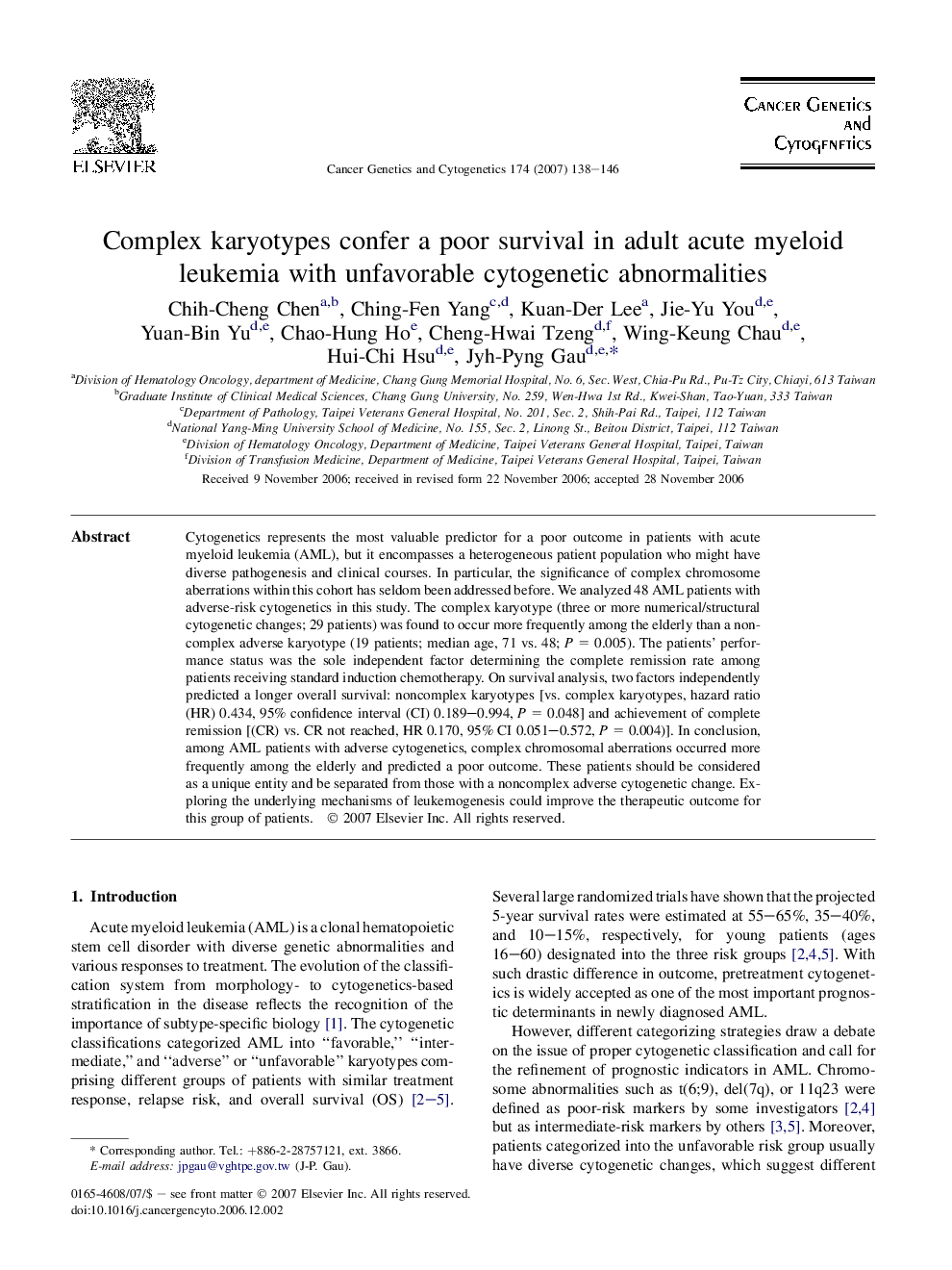| Article ID | Journal | Published Year | Pages | File Type |
|---|---|---|---|---|
| 2111644 | Cancer Genetics and Cytogenetics | 2007 | 9 Pages |
Abstract
Cytogenetics represents the most valuable predictor for a poor outcome in patients with acute myeloid leukemia (AML), but it encompasses a heterogeneous patient population who might have diverse pathogenesis and clinical courses. In particular, the significance of complex chromosome aberrations within this cohort has seldom been addressed before. We analyzed 48 AML patients with adverse-risk cytogenetics in this study. The complex karyotype (three or more numerical/structural cytogenetic changes; 29 patients) was found to occur more frequently among the elderly than a noncomplex adverse karyotype (19 patients; median age, 71 vs. 48; P = 0.005). The patients' performance status was the sole independent factor determining the complete remission rate among patients receiving standard induction chemotherapy. On survival analysis, two factors independently predicted a longer overall survival: noncomplex karyotypes [vs. complex karyotypes, hazard ratio (HR) 0.434, 95% confidence interval (CI) 0.189-0.994, P = 0.048] and achievement of complete remission [(CR) vs. CR not reached, HR 0.170, 95% CI 0.051-0.572, P = 0.004)]. In conclusion, among AML patients with adverse cytogenetics, complex chromosomal aberrations occurred more frequently among the elderly and predicted a poor outcome. These patients should be considered as a unique entity and be separated from those with a noncomplex adverse cytogenetic change. Exploring the underlying mechanisms of leukemogenesis could improve the therapeutic outcome for this group of patients.
Related Topics
Life Sciences
Biochemistry, Genetics and Molecular Biology
Cancer Research
Authors
Chih-Cheng Chen, Ching-Fen Yang, Kuan-Der Lee, Jie-Yu You, Yuan-Bin Yu, Chao-Hung Ho, Cheng-Hwai Tzeng, Wing-Keung Chau, Hui-Chi Hsu, Jyh-Pyng Gau,
